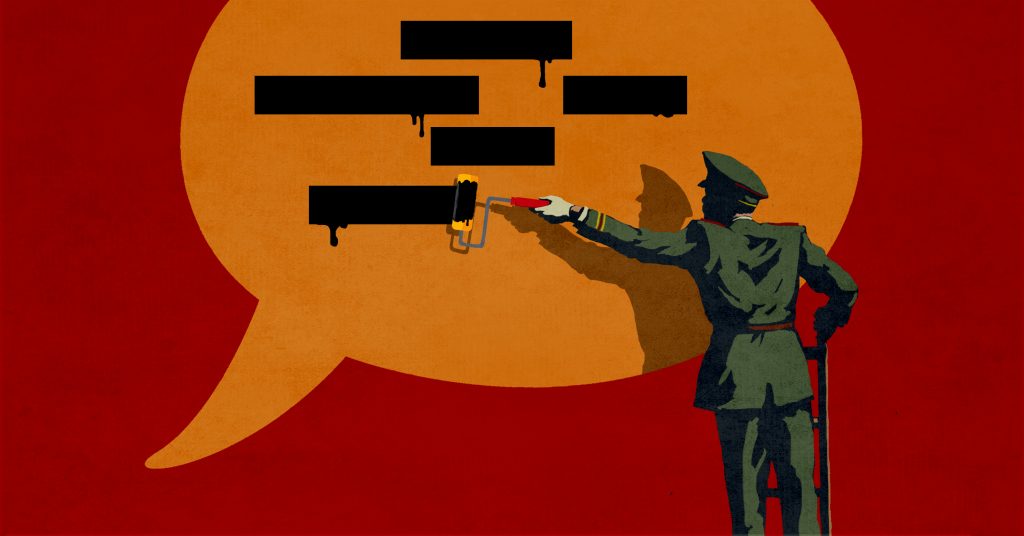Manila's demand for the removal of two episodes of the Australian series Pine Gap from Netflix Philippines’ catalog is just the tip of the iceberg of recent government pressure on Western digital platforms in Asia.
On November 1st, the Philippine government requested and obtained the removal from the Netflix Philippines’ catalog of episodes two and three of the Australian series "Pine Gap". Manila's irritation arose from the appearance of a map of the South China Sea representing the so-called "nine-dash line", typical of Chinese maps of those resource-rich waters disputed between China, the Philippines, Brunei, Malaysia, Indonesia, Taiwan and Vietnam. The Philippine film classification authority has defined the deleted episodes as "unsuitable for airing" and the Philippine Department of Foreign Affairs argues that the appearance of such a map must be countered as it is aimed at legitimizing the "nine-dash line" with the risk of "corrupting the knowledge and memory of young Filipinos about the real territories of the country". The removal of the two episodes was almost immediate, taking place in the evening. However, the hurry with which Netflix complied with the Philippine government's request was not the same in providing explanations to Reuters, responding only late at night. The cancellation decision was only made public on November 1st for currently unknown reasons.
It's not the first time that streaming services have had problems with authorities about film performances touching on sensitive issues in the region. Vietnam is an example of how pressure from local governments can become real coercion. If in the Philippines two episodes of Pine Gap were eliminated, in Vietnam the series was entirely deleted from the list for the same reason. Similarly, in 2019 Hanoi had withdrawn from theaters the Dreamworks film "Abominable" as well as the Chinese rom-com "Put Your Head on My Shoulder" and the American political drama "Madam Secretary" from on-demand services to avoid "hurting the feelings of the entire Vietnamese people".
Netflix is just one of the actors in this relationship between governments and platforms. In Asia-Pacific there are 40% of Meta’s social media users, formerly Facebook, which therefore has great interests in the area. Vietnam alone has 100 million users and a market worth a billion dollars. Filipinos are the most active on Meta platforms, spending on average over four hours a day online according to eMarketer, while Indonesians use WhatsApp as their main means of communication and information. Given the great impact of Meta on the populations of the region, local governments pay particular attention to what is happening on its platforms, especially since 2017.
Facebook works with the Ministry of Information and Communication (MoIC), the State Bank of Vietnam, the General Department of Taxation, and the Ministry of Public Security to identify and prosecute political crimes on social media. Under threat of shutdown and with the obligation to maintain its registered office, servers and local data storage in Vietnam, Facebook may have taken part in the censorship activities of the Hanoi government: according to Transparency Report, since 2019 the repression of dissent in the country has increased by 983%, the year in which Facebook has shut 200 anti-government sites down. From the Facebook Papers, documents leaked this year along with an investigation by the Washington Post on the Californian company, it emerges that in early 2021 Mark Zuckerberg may have given the approval to the censorship of many Vietnamese dissidents on the platform on the way to the thirteenth Congress of the Vietnamese Communist Party, essential for the selection of the leadership for the five years to come. Google's YouTube is not excluded from these dynamics. In 2019 it was forced to remove dissenting contents about the Hanoi government by deleting over 7000 videos and 19 channels. 58 Vietnamese games have been deleted from the Play Store, as well as from Apple.
Meta's Facebook also plays a role in the Philippines. Since 2017, it has participated together with Rodrigo Duterte’s government in the development of fast internet infrastructure in the country. Facebook's balancing with the government is difficult: in 2020 Duterte did not approve the shutdown of various accounts linked to the Police and the Philippine Army because of their role in the war on drugs initiated by the President. Duterte threatened the social network saying that for Filipinos there would be a life after Facebook and that some spokesmen of the social network should explain what occurred.
In Indonesia, the government uses the Law on Electronics Information and Transactions Act (ITE) to counter dissidents. Invoked about two hundred times since 2019, according to Amnesty International, this excessive use of it violates freedom of expression. To integrate this law, Ministerial Regulation 5 will come into force from December 2021 allowing foreign platforms to be taxed and involved in the legislative process, under threat of possible shutdown of the platform to prevent the spread of material "prohibited, illicit or that disturbs public order". For this reason, Facebook collaborates with the Ministry of Communication and Information Technology (Kominfo).
Beneath the surface of the digital sea, freedom of expression freezes more and more, thus magnifying the iceberg of repression.






